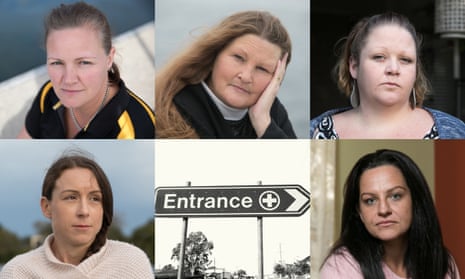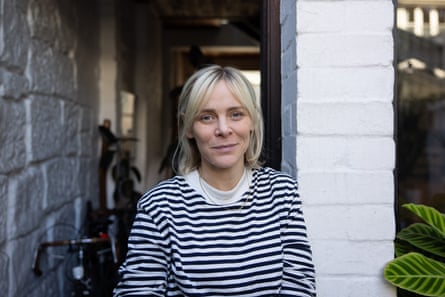On 4 June 2018 Guardian Australia reporter Melissa Davey received a phone message from a woman making a shocking claim.
An obstetrician working for a New South Wales hospital had paid a patient to have an abortion at almost 20 weeks, Davey was told when she called the woman back. He thought he had harmed the patient’s unborn baby during a medical procedure, the woman said, and wrote her a cheque to cover the termination.
“You immediately think: if that is true, that’s a huge story,” Davey says.
The story turned out to be much bigger.
Davey put in a request to the Health Care Complaints Commission, asking if it had any information about a Dr Emil Gayed. Pretty quickly she received a heavily redacted document.
As she remembers it: “I was about to leave work at about 6pm and I just sat there at my desk reading through it. I was literally exclaiming out loud.
“Not only did it have the case of the woman who had had been paid by this doctor for an abortion, there were several other women in there who had had fallopian tubes removed unnecessarily by this guy.
“It was like Patient A, Patient B, Patient C, Patient D. I was in shock.”

The document confirmed Gayed had been before a tribunal, was banned from practising for three years and was being investigated. That was enough to break the story.
The disgraced obstetrician would later be found by an independent inquiry – called in response to Davey’s investigative work – to have harmed scores of women across NSW, some of them irreparably. Over the course of two decades Gayed repeatedly removed organs unnecessarily, performed wrong procedures and caused injury, according to complaints the inquiry reviewed. A police investigation into his conduct is ongoing.
Within a day of publishing her exclusive, Davey received an email that said simply: “The details in the story are wrong.”
“This person then wrote back and said, ‘I know it’s wrong, because I’m the woman he paid to get an abortion.’
“Her issue with the document that I had based my story on was that it was very clinical and left out the detail of the harm that occurred,” Davey says. “She felt the story didn’t capture the full extent of the trauma she went through.”
After initial wariness, Lyndsay Heaton decided she wanted to tell her harrowing story.
With Guardian Australia’s picture editor, Carly Earl, Davey set off for Taree, on the mid-north coast of NSW, where Heaton lived and where Gayed had been a consultant at the local hospital.
Soon Davey’s inbox was “flooded with other women saying, ‘I saw him and I thought I was the only one, I had no idea.’”
Davey and Earl spent a couple of 16-hour days interviewing and photographing several of Gayed’s victims, then received word that the director of the health district was willing to talk to them – if they could get to Newcastle hospital that day.

“Carly and I got in the car, we drove for two hours and got there at like 6.30pm,” Davey says. They were taken up to a boardroom where they were introduced to two “very sombre men”.
One was the chief medical officer of the Manning Rural Referral hospital in Taree, Dr Osama Ali. “He admitted that a woman died of cancer after unnecessary and negligent surgery by Gayed,” Davey says.
“This was a new and significant development, and we felt it was important to get the full scale of Gayed’s harm out there as soon as possible.
“We had to get the story out, we just had to, it was all snowballing.”
Davey typed out a story in the car while Earl drove back to Taree. “We filed the story and it went up the next day.”
Earl says the trip became a “race against time” to stitch the story together. “It was like a flower – you keep unpicking petals on the outside and finding more and more layers … we tried to do it as delicately as we could …
“They were really long days: you’d find yourself sitting in a McDonald’s carpark waiting to talk to one person, then find somewhere scenic to photograph, then be on to the next one and the next one.

“Getting to the truth of someone’s narrative is difficult, particularly in a short period of time. As uncomfortable as it is, putting your face to words was imperative because it allowed the audience to connect emotionally on a deep level with these women.”
Davey says working on the Gayed stories deeply affected her but she takes comfort in knowing that the investigation also brought about significant change in rural obstetric care: “At no point was he stopped long-term by medical authorities, and until our investigation no one knew the full extent of his harm … But after we published the stories of Gayed’s victim’s, and they were so powerful, the authorities had to respond.”
An independent investigation into the health system was announced, focusing on Taree. It was led by Gail Furness SC, previously one of the high-profile commissioners in the royal commission into institutional responses to child sexual abuse.
Her inquiry into Gayed found “ongoing systemic failures between different parts of the health system, failing to talk to each other”, Davey says.
“Women weren’t taken seriously, nurses weren’t taken seriously … and especially in obstetrics there is a huge power structure, a huge culture of not questioning senior authority, hugely dominated by men.”
The inquiry’s recommendations have reformed the NSW health system to ensure women’s complaints are taken seriously and doctors who bounce around regions are properly supervised. A redress scheme for Gayed’s patients set up in 2021 has so far received claims from 50 women and paid out $1.6m, according to NSW Health. Dozens of women have received compensation through individual litigation. Other legal cases are continuing.
Gayed will not practise medicine in Australia again. His whereabouts is unknown.
“[Guardian Australia’s investigation] led to government inquiries, police inquiries, legal action,” Davey says. “But it’s hard to speak on behalf of the women and say whether that’s enough, because the reality is some of them have been permanently harmed.
“Some of them can’t have kids again … a death has occurred because of him.”
Heaton received a settlement from insurers representing Gayed and the hospital but says it troubles her that Gayed himself appears to have faced few consequences. She has spoken to police but has received no updates about the status of their investigation.
“If there had been proper reporting systems in place, I wouldn’t be in this position and neither would the other women,” Heaton tells Guardian Australia.
“But I’ve made it through to the other end. I can talk about it these days without crying, and I have reduced my counselling sessions to just once a month. I never wanted anything other than for my complaint to be acknowledged because I knew something awful and wrong had happened to me, and I never knew my one little complaint was going to branch out into so many other women coming forward.
“I’m glad [Guardian Australia] broke the story and got it out there, because all of these other women have been able to have the opportunity to get some compensation for what they went through as well.”
-
To celebrate our birthday, we are holding a special evening for supporters with Guardian editors and journalists. You can buy tickets here

